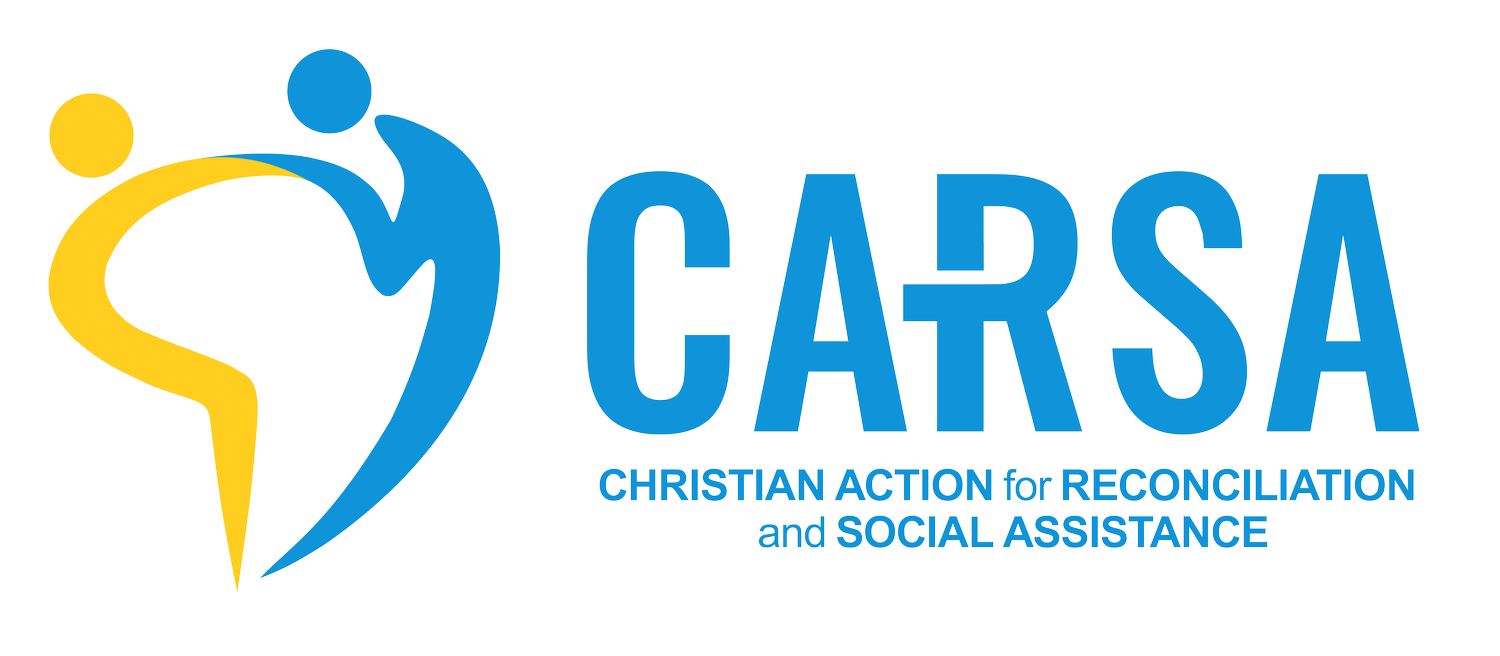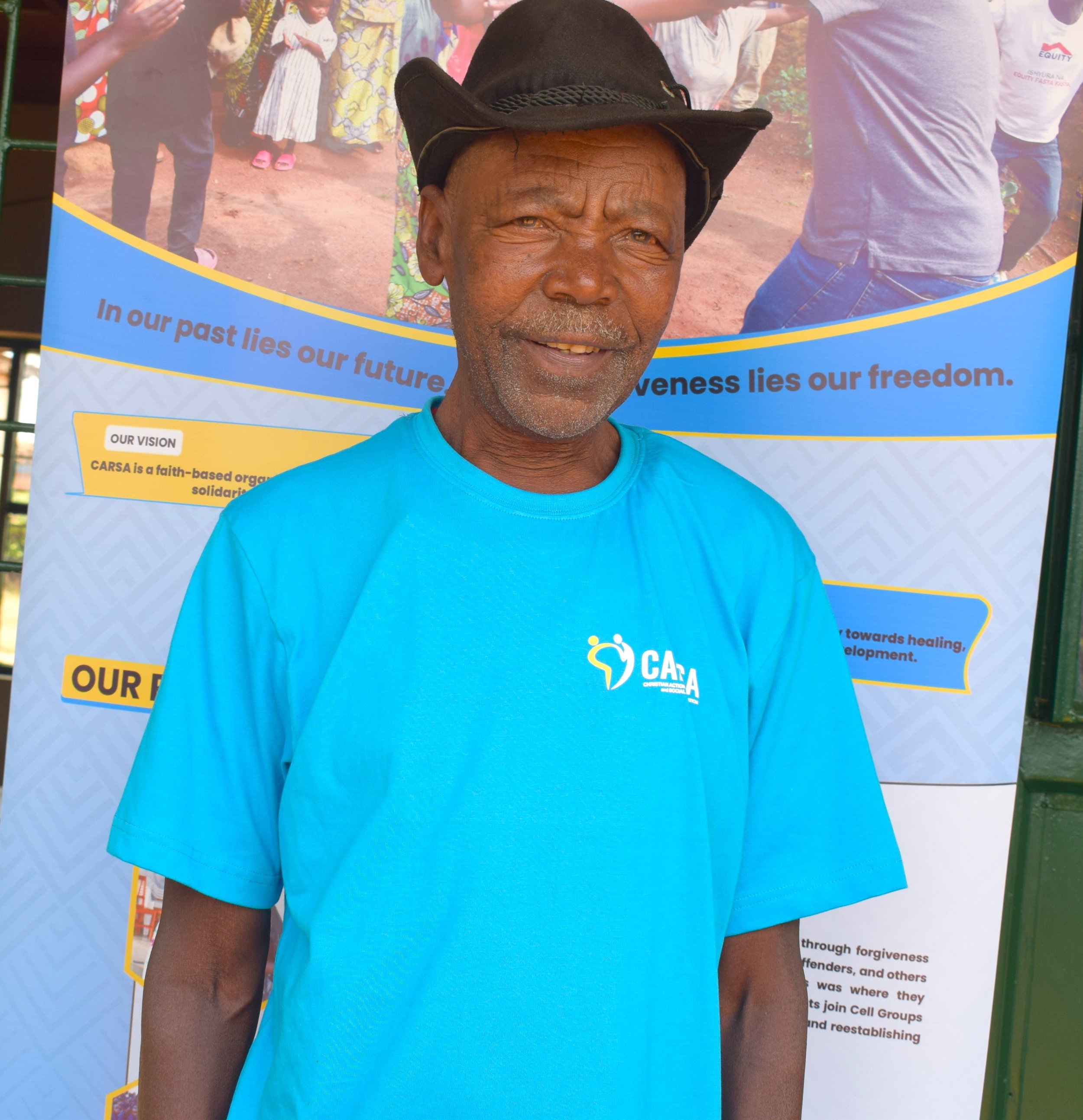CARSA—Focusing on shaping young people to be at the center of peace and sustainable development
Born from a Genocide survivor in the middle of 1994, Ndacyayisenge Ezechiel, his father was killed with many other people from his family. Since secondary school, Ezechiel has been an active member of CARSA's peace education initiatives and school-based peace clubs. On a trip to the Kigali Genocide Memorial site with a larger group of students, he began to understand genocide execution and what had happened to his family. He also attended trainings organized by CARSA which helped him understand the root causes of the ethnic-based division that made him an orphan even before he was born. Ezechiel and his fellow young people in the peace club are thankful that CARSA has provided the space to learn the genocide history, fight against the genocide ideology that led Rwanda to darkness, work together to evade any recurrence, and pursue sustainable development.
“When CARSA came to operate in our area, I had the opportunity to attend the training with elders, including those who committed the genocide against Tutsi. The victims were also there to share their experiences, and CARSA taught about peace-building. I started to understand that I had to live in harmony with my fellow young people without necessarily caring about my mother's traumatic experiences. Due to her experience, my mother always told me not to go to some neighbor's houses, especially to those who had a role in killing my father. With CARSA’s teaching, I comprehended that my mother was led by her bad experience, and I acknowledged that as young people we have to put our effort together to build a better nation.”
Ezechiel testified during the official launch of Umucyo (light) Youth Peace Club on August 23, 2024, in Muhanga District. The event convened about 100 participants, including the leaders of CARSA, local government leaders, members of the club (mostly young people), genocide survivors, ex-perpetrators, and rescuers (Abarinzi b’Igihango). Together with friends from the community, the club celebrated the remarkable strides they have made in transgenerational trauma healing, sustainable peace-building, and improving their livelihood. They are excited to continue planting seeds of peace in their families and community.
For the past two years, the group of 40 has been working with CARSA to successfully launch three businesses. Despite the COVID-19 pandemic that prevented them from celebrating their launch before, this club has demonstrated remarkable resilience.
After participating in a Peace Conversation Circles (PCC) program, they began working together towards economic development. They chose farming as their initial project where they grew oranges but also started making shoes. With the first harvest from the fruits, they were able to buy two cows that they are raising especially getting manure from those cows to use in their orange plantation.
Kabagema Silas is one of the elder members of the peace club and former genocide perpetrator. He has accepted his role in the 1994 genocide against the Tutsi and already reconciled with victims.
Kabagema Silas, one of the elder members of the peace club, is a former genocide perpetrator who has accepted his role in the 1994 genocide against the Tutsi. He was imprisoned for ten years, but his life after prison was difficult. He lived with deep guilt and shame. CARSA supported him to overcome the shame and guilt and today, he is grateful because he was able to reconcile with the victims, he had wronged.
"My wrongdoing caused me to stay away from other people as I feared interacting with them, but CARSA invited me to attend the dialogue where I embarked on the new journey of restoring relationships with victims, and today, we’re living together in peace.”
This is the same case for Nyiragaruka Eulerie, who lost almost her entire family during the genocide; her life after the tragedy was full of hardship and trauma. She could not find peace while the causes of misery (perpetrators) still lived next door. She suffered from PTSD until the CARSA Reconciliation Workshop became the light for her. Learning tools to identify her inner wounds and heal them with forgiveness has freed her to live in harmony with those people who killed her family.
“Before CARSA, I felt loneliness, and I was hopeless, but after the CARSA training, I understand how to forgive. During the CARSA reconciliation workshop, a perpetrator came to me and asked me for forgiveness, initially, it was very difficult to forgive him but with the teaching about forgiveness, I was able to forgive him and his entire family as we were living in the same neighborhood. Our relationship is very good today. When I had a new baby, I went to his house to show him my baby, which is a sign of trust.” Eulerie said.
Nyiragaruka Eulerie is a genocide survivor who was able to get relief and forgive people who killed her relatives with the support of both CARSA and Peace club.
Why does CARSA work with young people?
Christophe Mbonyingabo, Executive Director of CARSA, explained the importance of working with young people as a post-genocide generation. These young people need to learn the history not only from government history experts but also from local people who lived through that experience and have been in the process of reconciliation. Peace clubs like Umucyo are a platform for the younger generations of Rwandans to learn more about the nation’s history from elder people from their communities. Peace clubs teach the future of Rwanda to use their skills and education to foster a culture of peace, resilience, unity, and sustainable development.
“The club consists of both elders and youths to further support our young leaders to learn the nation's history from the real actors who witnessed the genocide (victims, perpetrators, and rescuers) who live in the same sector or cell with these youth to tell them community-based narratives about pre, during and post-genocide relationship in Rwanda. These young people have been exposed to historical narratives from their schools, government-organized events, and media but learning from people they know well, people from their own communities makes a huge difference. They learn the history from a local, community-based narrative.” Christophe said.
Rwanda has made remarkable progress in strengthening social and economic resilience in the past 30 years. However, many Rwandans, especially young people, face challenges related to post-genocide intergeneration trauma as well as economic challenges due to unemployability.
We have been working with 30 schools and over 5,000 Rwandan young people have participated in our programs. They have visited genocide memorials and attended peace conferences and peace-building trainings. These youths are making an impact in their communities.
Young people learn how to develop profitable businesses and how to successfully manage them. Joint business initiatives play a dual role: enabling them to improve their social and economic conditions and sustain the social bonds they have formed during the journey of healing.
In collaboration with our peace-building partners, our youth empowerment programs optimize strategic partnerships to provide education sponsorship, life skills, vocational training, entrepreneurship, and computer literacy education.
To fulfill the promise of “Never Again,” we must tell the truth about what happened in 1994, understand it, and choose to follow another path as individuals and communities.
Would you wish to be part of what CARSA is doing and collaborating to achieve a greater impact on our young people? You are welcome and please Email us now: info@carsaministry.org
The club has provided 4 young chickens to 2 young boys from vulnerable families to improve the community's standard of living.
The event was described by patriotic and inspirational songs







